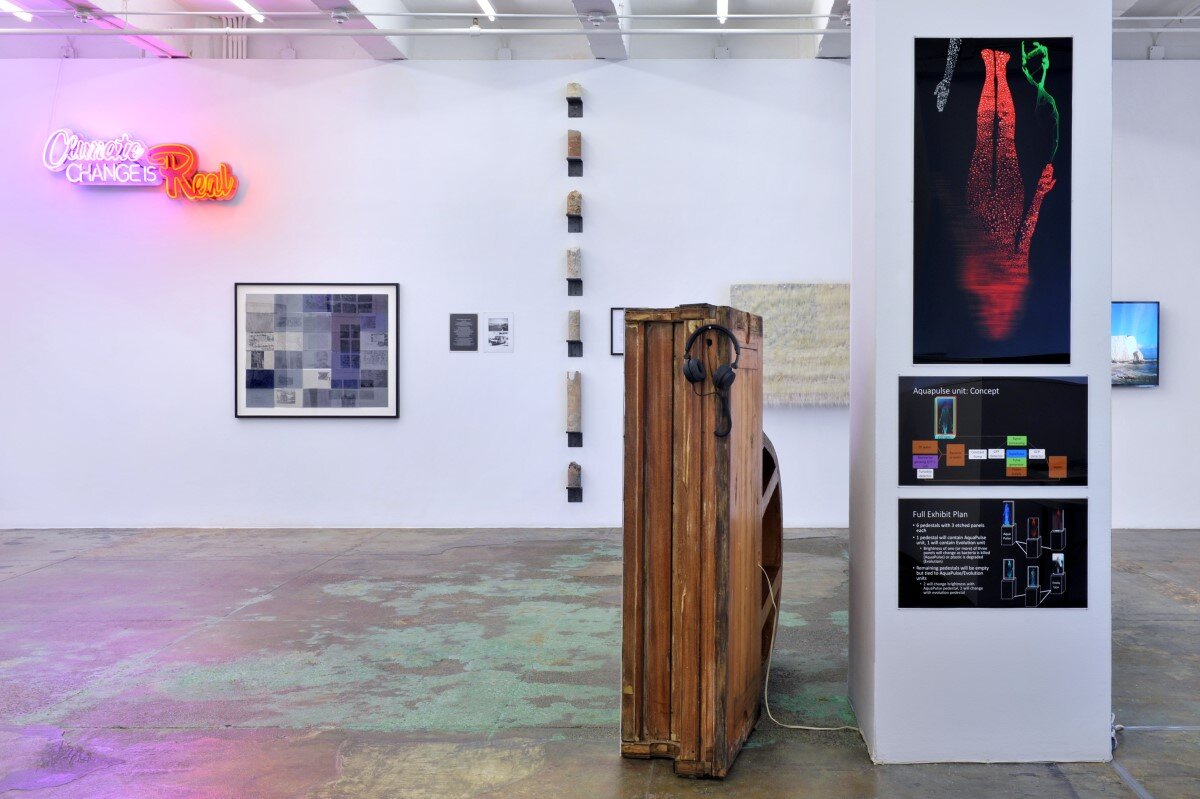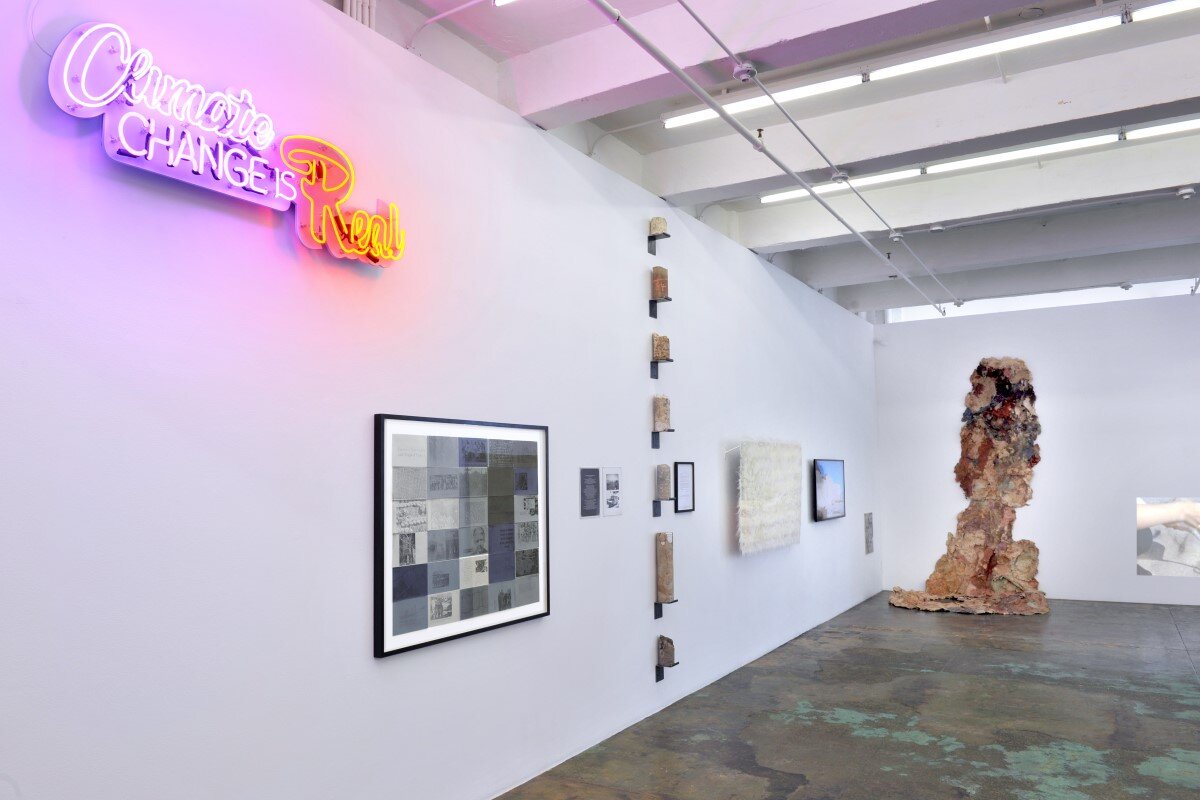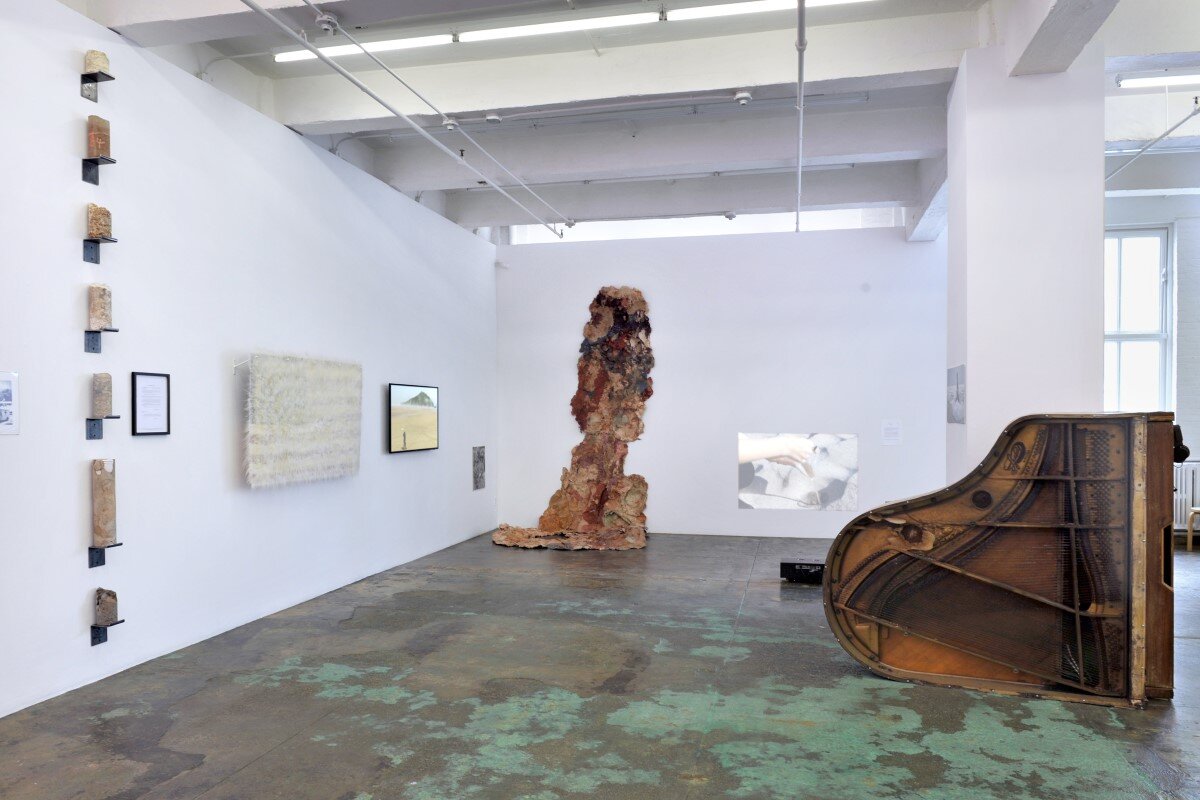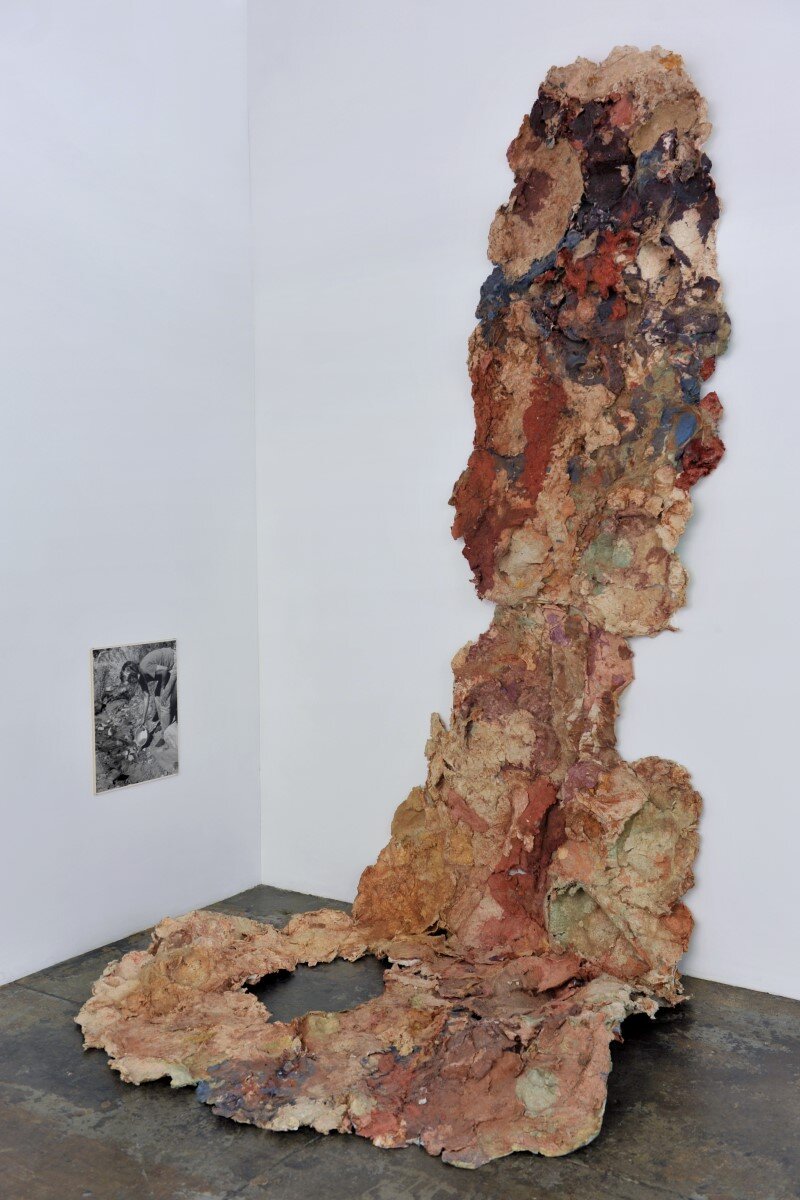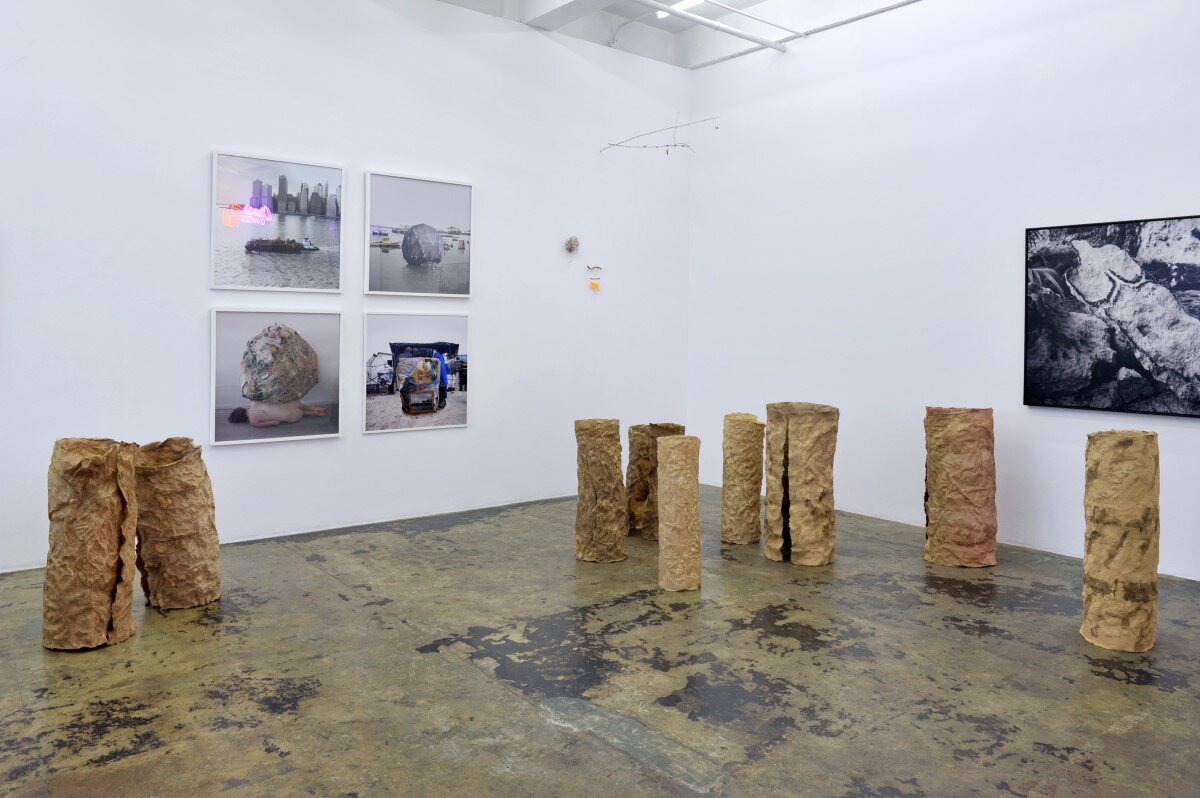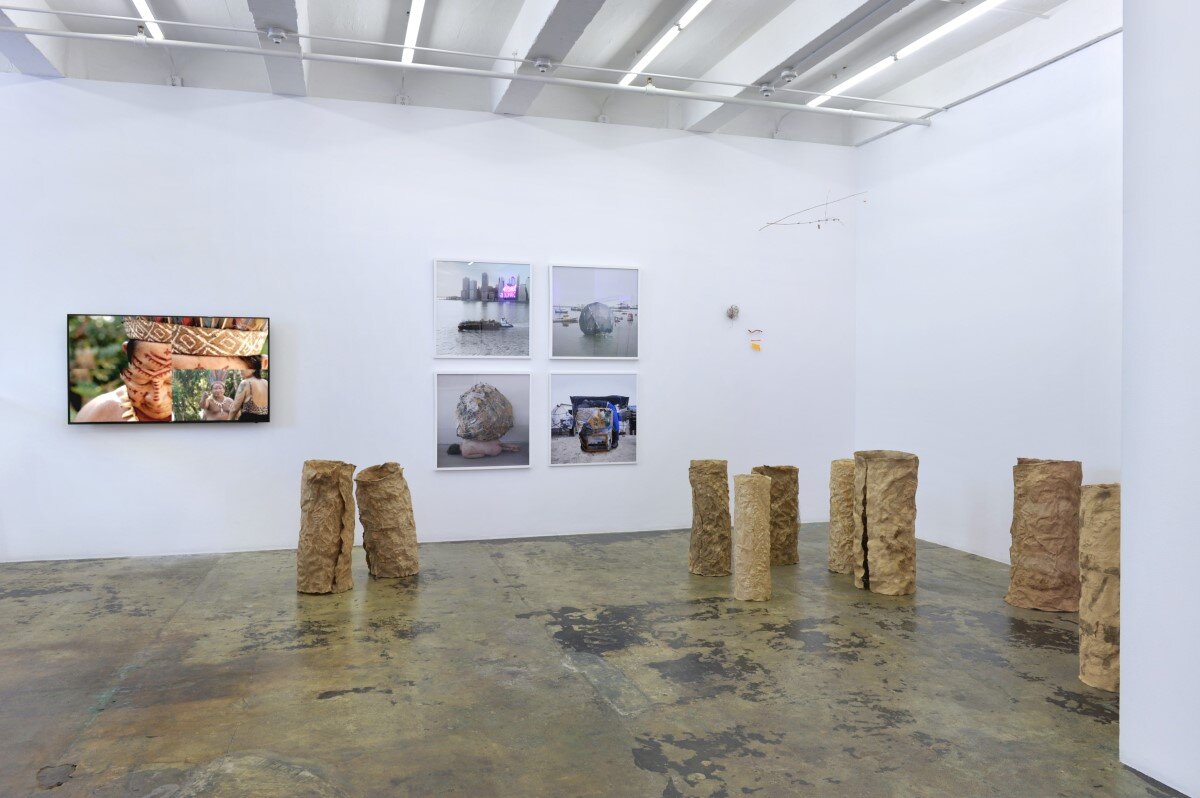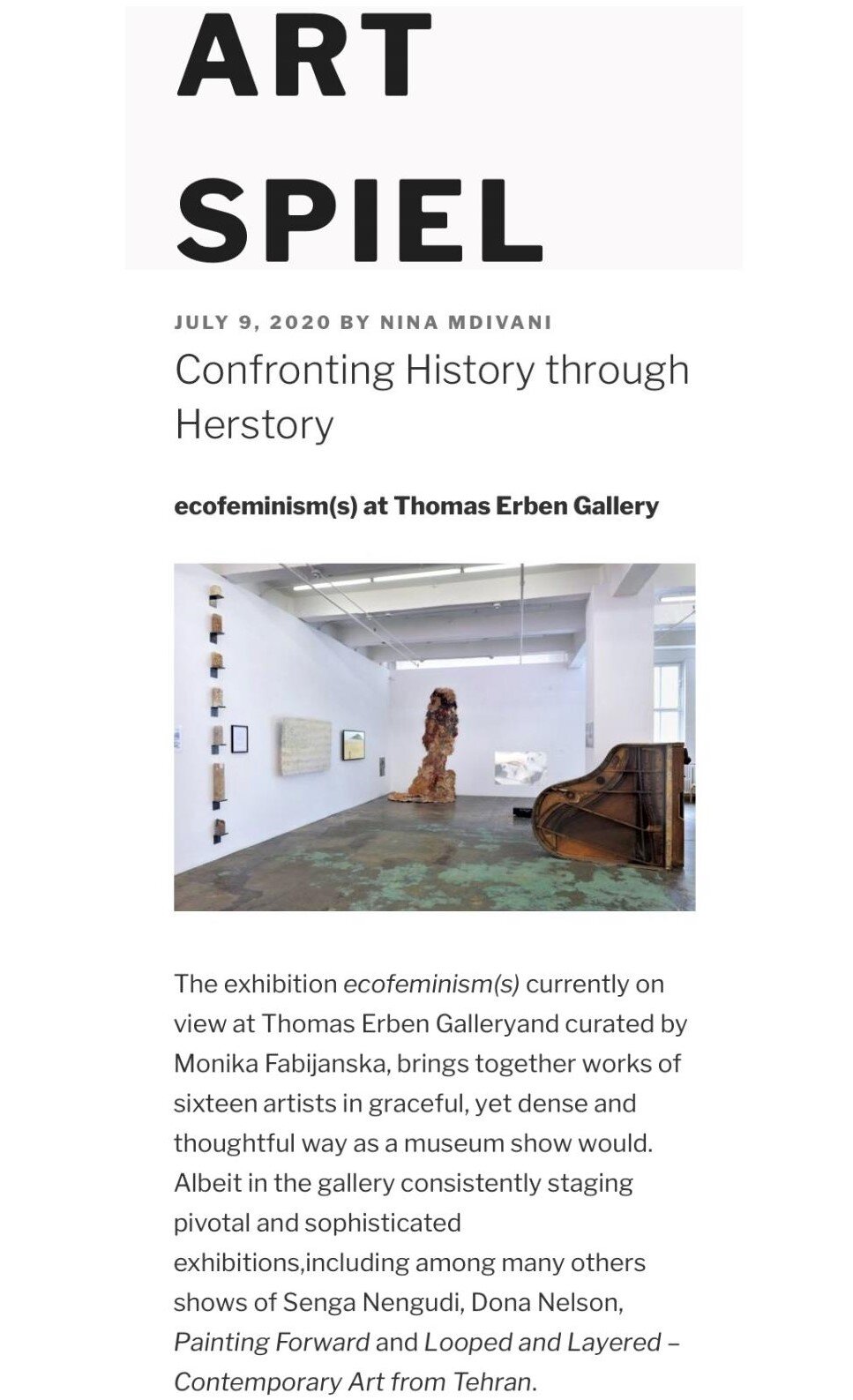Jessica Segall, A Thirsty Person, Having Found a Spring, Stops to Drink, Does Not contemplate Its Beauty, 2011, performance/video still, archival print
©2011 Jessica Segall. Courtesy of the artist
In 2018 (…), Fabijanska curated “The Unheroic Act,” an astute, widely reviewed survey of postwar and contemporary art about sexual violence. Now she once again covers an impressive stretch of aesthetic and historical ground—this time using twenty-six artworks by sixteen female artists. But what stands out is the cohesiveness of her curatorial vision. Particularly through her inclusion of works referencing Indigenous cultures, Fabijanska makes the case that ecofeminist art employs a greater range of formal modes than is commonly acknowledged, from the polemical to the comic to the spiritual. - Louis Bury, Art in America
ecofeminism(s)
curated by Monika Fabijanska
June 19 - July 24, September 8-26, 2020
opening reception - no public gathering is planned
press day - Thursday, June 18, 2020, 12-6 PM
artists talks - Wednesdays, July 8, 15, 22, Sept. 10, 16, 6:30 PM
gallery hours: Tue-Sat, 11-6 (June); Mon-Fri, 11-6 (July), Tue-Sat, 10-6 (Sept.)
Thomas Erben Gallery
526 West 26th Street, 4th Floor
New York, NY 10001
tel. 212-645-8701
PRESS RELEASE
PRESS KIT (updated 8/28), WITH WORK DESCRIPTIONS & IMAGES
LIST OF ARTISTS
LIST OF ARTWORKS
IMAGES
ESSAY
EXHIBITION PRESS
PUBLIC PROGRAMS: ZOOM CONVERSATIONS
moderated by curator Monika Fabijanska
SPEAKERS’ BIOS
I. Wednesday, July 8, 6:30 PM EST
Lynn Hershman Leeson
Mary Mattingly
Hanae Utamura
Julie Reiss, Ph.D., Christie’s Education
II. Wednesday, July 15, 6:30 PM EST
Aviva Rahmani
Sonya Kelliher-Combs
Jessica Segall
Candice Hopkins, curator, writer, and a citizen of Carcross/Tagish First Nation
III. Wednesday, July 22, 6:30 PM EST
Betsy Damon
Eliza Evans
Carla Maldonado
Eleanor Heartney, art writer, contributing editor, Art in America
SPECIAL PROGRAM:
Thursday, September 10, 6:30 PM EST
Christies’s webinar: Spotlight on ecofeminism(s)
This complimentary webinar explores the critically acclaimed exhibition ecofeminism(s) at Thomas Erben Gallery. Exhibition curator Monika Fabijanska and gallerist Thomas Erben join Christie’s Education’s Julie Reiss for a discussion about the show’s timeliness and the increasing centrality in the art world of art grounded in ecological and other human rights concerns.
IV. Wednesday, September 16, 6:30 PM EST
Raquel Cecilia Mendieta, niece and goddaughter of Ana Mendieta
Mira Friedlaender, daughter of Bilge Friedlaender
Ecofeminism is one of the richest hidden caches of contemporary art. It is art that delights the eye, provokes the mind, and can inspire change. It also restores art’s function to what it was before the Enlightenment, when both science and art were tools to understand the world and propose solutions.
ecofeminism(s) explores the legacy of some of the pioneers of ecofeminist art: Helène Aylon, Betsy Damon, Agnes Denes, Bilge Friedlaender, Ana Mendieta, Aviva Rahmani, and Cecilia Vicuña, and how their ideas and strategies are continued, developed or opposed by younger generations – Andrea Bowers, Eliza Evans, Sonya Kelliher-Combs, Carla Maldonado, Mary Mattingly, Jessica Segall, and Hanae Utamura. It also features the ecofeminist works of Lynn Hershman Leeson and Barbara Kruger, who escape these categories.
The historical perspective gained over the last fifty years reveals how revolutionary the work of pioneer feminist artists was, and how relevant it remains, whether for women’s rights or the development of social practice. The most remarkable, however, is their voice regarding humanity's relationship to nature. The foundation of ecofeminism is spiritual feminism, which insists that everything is connected – that nature does not discriminate between soul and matter. Their recognition that Western patriarchal philosophy and religions have served to exploit both women and nature is particularly resonant in the era of the #MeToo Movement and Climate Change. But if the ecofeminist art of the 1970s and 1980s was largely defined by Goddess art, ritual performance, anti-nuclear work, and ecological land art – the curator poses the question – what makes female environmental artists working today ecofeminists?
Since the 1970s, ecofeminism evolved from gender essentialism to understanding gender as a social construct to gender performativity. But today’s feminists still address the degradation of the environment by creating diverse responses to patriarchal power structure, capitalism, and the notion of progress. They invoke indigenous traditions in maintaining connection to nature and intensify the critique of colonialist politics of overextraction, water privatization, and the destruction of native peoples. They continue to employ social practice and activism, but focus on denouncing global corporate strategies and designing futuristic proposals for life on earth.
PRAISE FOR ecofeminism(s)
In 2018 at the John Jay College of Criminal Justice in New York, Fabijanska curated “The Unheroic Act,” an astute, widely reviewed survey of postwar and contemporary art about sexual violence. Now she once again covers an impressive stretch of aesthetic and historical ground—this time using twenty-six artworks by sixteen female artists. But what stands out is the cohesiveness of her curatorial vision. Particularly through her inclusion of works referencing Indigenous cultures, Fabijanska makes the case that ecofeminist art employs a greater range of formal modes than is commonly acknowledged, from the polemical to the comic to the spiritual.
- Louis Bury, Art in America
With the dearth of research on ecofeminist art and ecofeminism more generally, it takes a keen eye to piece together an exhibition that does justice to the topic. But ecofeminism(s) does just that. Featuring work from the late ‘60s — when ecofeminism first began to take root — to the present-day, the exhibit displays numerous approaches to the critique, dismantling, and reimagining of patriarchal ecologies. […] The works in ecofeminism(s) are an urgent reminder of our present climate and human rights emergencies. In their expansive vision they also imply that another world is, and has always been, possible.
– Cassie Packard, Hyperallergic
ecofeminism(s) is a group show with an ambitious curatorial stance. It looks at the mutual development of feminist and ecological art in the 1970s and ’80s, while highlighting recent ecological art by women. Curator Monika Fabijanska casts ecofeminism not as a discreet movement but as an expansive concept, one that can historicize an underrecognized current in women’s art and help us reimagine the role of the artist in times of collective struggle.
– Alex A. Jones, The Brooklyn Rail
The ambitious show features 15 artists of different generations whose feminism is grounded in ecological concerns. […] Over the past few months, as I’ve been consumed by the pandemic and Black Lives Matter uprising, art has often looked marginal to me, at best. But “ecofeminism (s)” was one more visceral reminder that our world has been in crisis for centuries. As artists, writers, and humans, what choice do we have but to keep searching for points of connection and creative ways to respond?
– Jillian Steinhauer, The New York Times
The show’s significance far exceeds a survey of a fertile facet of recent art history. That is because the exhibition opened in the throes of the COVID-19 crisis. […] It includes feminism because COVID exacerbates gender and social inequities. Likewise, it includes ecology because pandemics are linked to pollution and habitat loss. As a result, this timely exhibition provides an opportunity to review the social condition that gave rise to feminism, as well as the environmental disruptions attended to by ecology. […] Fabijanska accommodated the absence of unifying specifics by providing a generalized definition. She stated that ecofeminism “insists that everything is connected — that nature does not discriminate between soul and matter.” This show offers a rich sampling of the creative outcomes of such “insisting.”
– Linda Weintraub, Flash Art
ecofeminism(s) […] takes us on a visual journey of the pioneering environmental art works of the 1970s and 80s through the present. […] Advancing principles of spiritual feminism, feminist metaphors of the Great Goddess and Cosmic Mother, and anti-nuclear activism […] the early eco–feminists underscore earth’s fragility and vulnerability—thinly veiling our fears and prophetically imagining our current global crises and pandemic.
– CAA News Today: CWA (Committee for Women in the Art) Picks for July 2020
Ecofeminist art practices focus directly on situations affecting life and the body and the conditions in which the body lives, especially regarding the exploitation of women and traditionally oppressed groups. This extraordinary gateway exhibition, precisely yet expansively curated by Monika Fabijanska, is a survey, a retrospective, and an education all in one.
– William Corwin, Arcade Project
This exhibition convincingly illuminates a hidden as well as evident conflict between two versions of reality: one produced by man-centered institutions and associated myths, History and idea of progress as the trajectory of civilization and one, much more subtle, Herstory, a nuanced set of ideas grounded in spiritual feminism.
– Nina Mdivani, Art Spiel
“Ecofeminism(s)” at Thomas Erben Gallery, curated by Monika Fabijanska, is not only one of the first but one of the best shows recently opened to the public.
– Merrily Kerr, new york art tours



